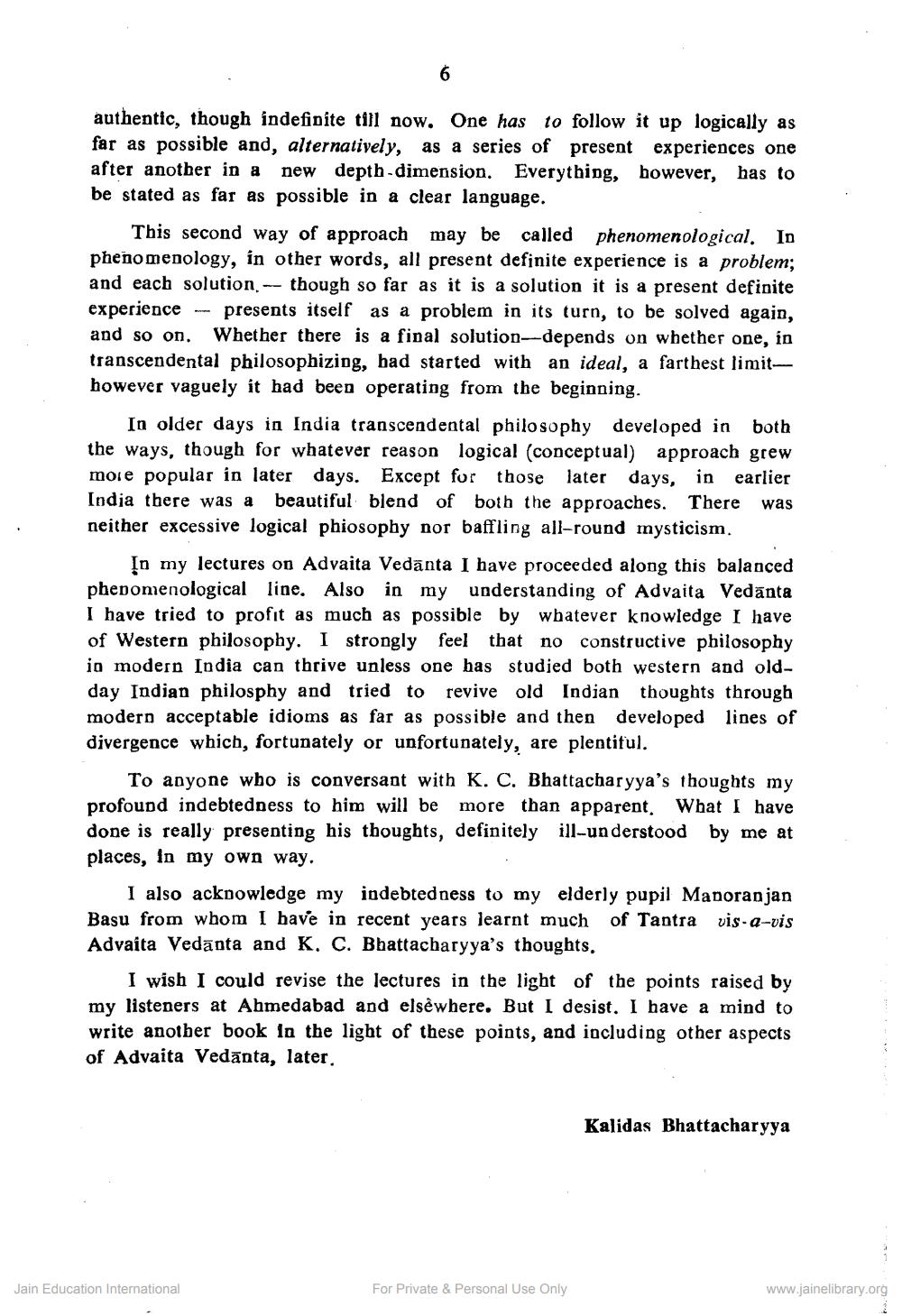Book Title: Advaita Vedanta Author(s): Kalidas Bhattacharya, Dalsukh Malvania Publisher: L D Indology Ahmedabad View full book textPage 7
________________ authentic, though indefinite till now. One has to follow it up logically as far as possible and, alternatively, as a series of present experiences one after another in a new depth-dimension. Everything, however, has to be stated as far as possible in a clear language. This second way of approach may be called phenomenological. In phenomenology, in other words, all present definite experience is a problem; and each solution. -- though so far as it is a solution it is a present definite experience - presents itself as a problem in its turn, to be solved again, and so on. Whether there is a final solution--depends on whether one, in transcendental philosophizing, had started with an ideal, a farthest limithowever vaguely it had been operating from the beginning. In older days in India transcendental philosophy developed in both the ways, though for whatever reason logical (conceptual) approach grew more popular in later days. Except for those later days, in earlier India there was a beautiful blend of both the approaches. There was neither excessive logical phiosophy nor baffling all-round mysticism. In my lectures on Advaita Vedānta I have proceeded along this balanced phenomenological line. Also in my understanding of Advaita Vedānta I have tried to profit as much as possible by wbatever knowledge I have of Western philosophy. I strongly feel that no constructive philosophy in modern India can thrive unless one has studied both western and oldday Indian philosphy and tried to revive old Indian thoughts through modern acceptable idioms as far as possible and then developed lines of divergence which, fortunately or unfortunately, are plentiful. To anyone who is conversant with K. C. Bhattacharyya's thoughts my profound indebtedness to him will be more than apparent. What I have done is really presenting his thoughts, definitely ill-understood by me at places, in my own way. I also acknowledge my indebtedness to my elderly pupil Manoranjan Basu from whom I have in recent years learnt much of Tantra vis-a-vis Advaita Vedānta and K, C. Bhattacharyya's thoughts. I wish I could revise the lectures in the light of the points raised by my listeners at Ahmedabad and elsewhere. But I desist. I have a mind to write another book in the light of these points, and including other aspects of Advaita Vedānta, later. Kalidas Bhattacharyya Jain Education International For Private & Personal Use Only www.jainelibrary.orgPage Navigation
1 ... 5 6 7 8 9 10 11 12 13 14 15 16 17 18 19 20 21 22 23 24 25 26 27 28 29 30 31 32 33 34 35 36 37 38 39 40 41 42 43 44 45 46 47 48 49 50 51 52 53 54 55 56 57 58 59 60 61 62 63 64 65 66 67 68 69 70 71 72 ... 78
